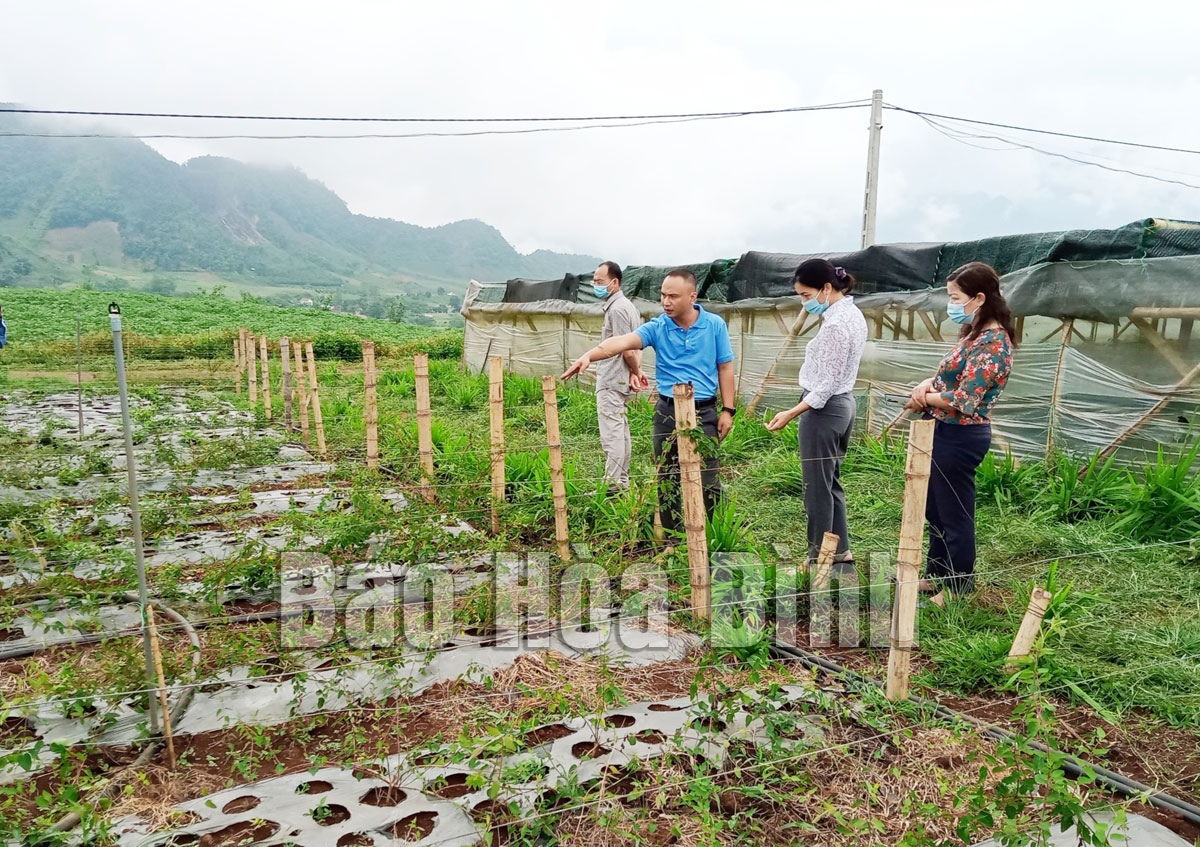
(HBO) – After two years of implementation, the medicinal plant cultivation model in Da Bac district’s Yen Hoa commune has brought about practical economic outcomes. With its potential, the model is planned to be replicated in the coming time.
The
model of growing organic medicinal plants in Yen Hoa commune (Da Bac) initially
bring about practical results.
Realising such benefits, locals have so far created favourable conditions for
the cooperative to lease over 11 hectares of land to expand its cultivation
area. The cooperative creates regular jobs for 14 local workers, with an
average income of 5 – 6 million VND per person per month.
Determining that developing sustainable agriculture requires organic
production, right from the beginning, the cooperative has cultivated its
medicinal plant garden completely without using chemical fertilizers and
pesticides. Instead, organic fertilizers and herbal pesticides have been
ultilised.
Luong Van Xung, Chairman of the Yen Hoa People's Committee, said medicinal
plants are suitable for local soil conditions. In addition to the leased land,
there are many areas potential for further cultivation expansion. He also pledged the local authorities’ support for businesses to invest in new
models serving socio-economic development.
In the coming time, Da Bac aims to expand its areas for organic medicinal
plants to 25 – 30ha by 2025. For the target, the district will build mechanisms
and issue policies to attract resources from organisations and individuals for
the development of the plantations and processing technologies. The cultivation
of native medicinal plants is encouraged./.
Since the beginning of this year, under the direction of the Department of Agriculture and Environment, the Sub-Department of Agricultural, Forestry, and Fishery Product Quality Management has strengthened the integration of the professional activities to promote and guide the organizations and individuals in the production and trading of agricultural, forestry, and fishery products to comply with the legal regulations regarding the use of chemicals, pesticides and veterinary medicines in crop cultivation, livestock farming and aquaculture. They also provide guidance to processing and manufacturing establishments on keeping the records to trace the product origins and using food additives from the approved list according to the regulations.
Hoa Binh province saw a significant rise in state budget revenue in the first two months of 2025, heard a meeting chaired by Vice Chairman of the provincial People’s Committee Quach Tat Liem.
Ha Thi Ha Chi, a 26-year-old graduate in law, has taken an unconventional path by returning to her hometown in Mai Chau district to establish the Tong Dau Cooperative, creating stable jobs for local women and bringing Thai ethnic brocade weaving to the global market.
As the Lunar New Year 2025 approached, pork prices surged, creating a profitable season for farmers in Tan Vinh commune, Luong Son district. Taking advantage of the rising demand, Can Minh Son, a farmer from Coi hamlet, sold over 30 pigs at 69,000 VND/kg, each weighing more than 100 kg. After deducting expenses, his family earned a profit of over 50 million VND.
alternate member of the Central Party Committee, Secretary of the Hoa Binh provincial Party Committee Nguyen Phi Long on March 5 had a working session with Yan Jiehe, Founder and Chairman of the China Pacific Construction Group, one of China's largest private corporations in the field of transport infrastructure. Deputy Secretary of the provincial Party Committee, Chairman of the provincial People's Committee Bui Duc Hinh and leaders of provincial departments and sectors also attended the working session.
The electronic printed circuit board (PCB) manufacturing and processing plant of Japan’s Meiko Group, located at Da River Left Bank Industrial Park in Hoa Binh city with a total investment of over 200 million USD, is expected to create thousands of jobs and make a significant contribution to the local budget.



